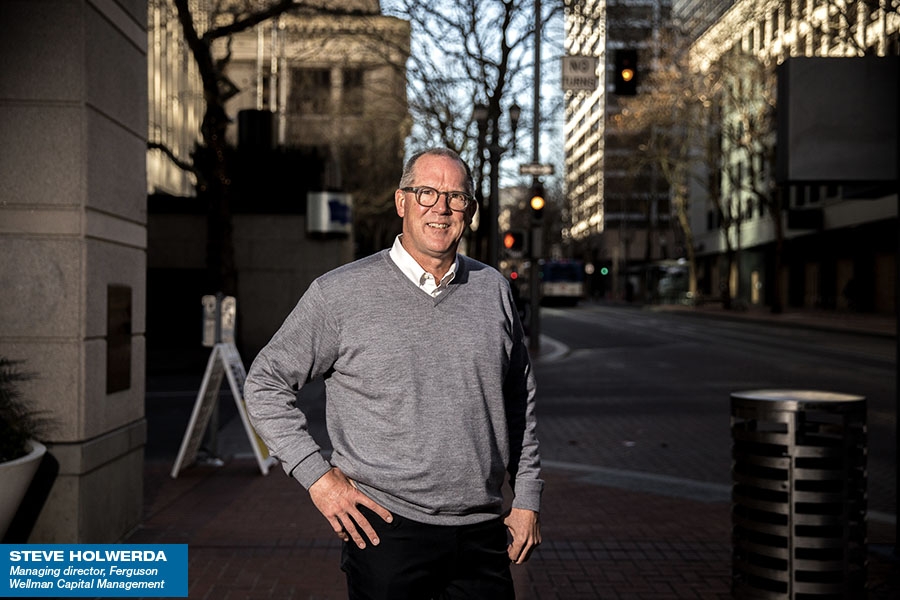The managing director of Ferguson Wellman Capital Management makes the case for bringing employees back to the office.
OB spoke to executives at firms in a variety of sectors to see how the pandemic has transformed their businesses and how they see the future of the workplace evolving in a post-pandemic world.
In the next of our series of interviews with business leaders, Steve Holwerda, managing director of Ferguson Wellman Capital Management, discusses the reasons the company will not go fully remote.
For Steve Holwerda, managing director of Ferguson Wellman Capital Management, the operational changes it made to adapt to the coronavirus have made it a “better company today” than it was pre-pandemic.
The biggest long-lasting change to the business is the adoption of a daily meeting for all staff members. Before the firm’s staff of 50 went fully remote in mid-March, the company would hold a 9 a.m. meeting every Monday for managers. During the pandemic, the company has held a daily meeting for all employees to join via Zoom. Each meeting lasts 15 minutes and has an agenda and assigned speakers.
This daily meeting has been “transformational for our company,” says Holwerda. “It has increased communication for everyone. It is also giving leadership opportunities throughout the company. That has impacted us in a positive way by bringing inclusion. We will continue that in some manner when we get back.”
The wealth-management firm has grown during the pandemic; it hired three people and expects to hire three more. It has also had one of its “best years for new business,” says Holwerda.
And bucking the trend of many companies, it took on more office space. It had signed up for more square footage before the pandemic and decided to keep that plan in place. “We fully built it out; we put furniture in. It is waiting for us to come back.”
Returning to the office is a certainty for Holwerda. Having employees working together is an important part of the company culture that he wants to continue. “Our company culture has always been a lot about having an open-door policy — it is very interactive and we like that. That is one reason we would not be a purely remote company. We think there is value in the communication flow.”
The company has set a provisional goal of bringing all staff back to the office full-time on March 31, 2021. It will spend three months gathering feedback from staff and figuring out how much flexibility to provide for working remotely, which will likely vary by position.
It is a big change for a company that required all staff to come into the office before the pandemic. Holwerda recognizes the benefits to staff of being able to work remotely. “Everyone has learned it is nice to save an hour a day in commute time. It is nice to have the flexibility to get things done with my family that I wouldn’t have had before,” he says.
But at the same time, he feels the free flow of communication has taken a hit with remote working, which is why employees will be required to come into the office at least part of the time. “Most everyone says it is harder on the communication. There is some loss with always communicating with email or chat. Every day you feel you lose a tiny bit of your culture.”
To subscribe to Oregon Business, click here.








